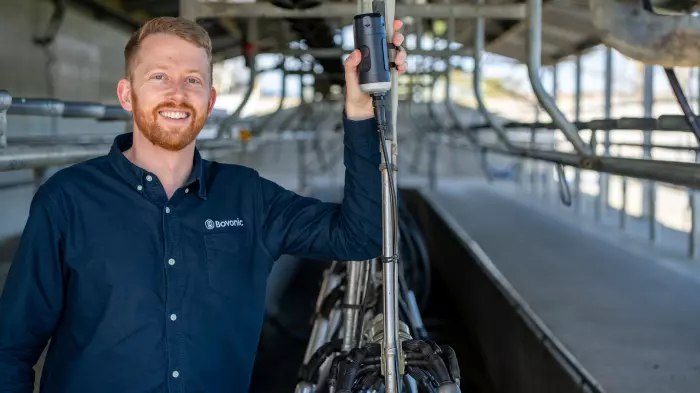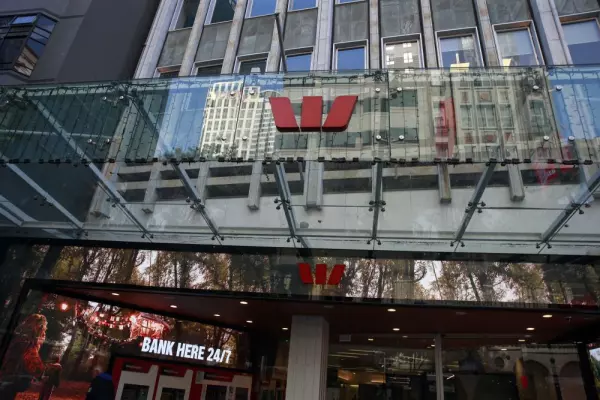BusinessDesk's investments editor, Frances Cook, responds to readers' emails on a weekly basis to answer various questions about money. Below you'll find her expert advice. Send your own questions to [email protected].
Hi Frances,
Left-field question.
CVs – yes, there are multiple free resources available. But they don't seem to help me catch recruiters' or HR managers' eyes.
I've had skills-based CVs, I've had experience-based CVs, but I still get very limited feedback.
In the employees' market we seem to find ourselves in, there really hasn't been anything suggesting how to actually get "in there".
A little background: I've applied for an average of two jobs A DAY for the last 60 days. I’ve had two interviews, with no feedback on either. Usually, I get administrator and account support fields.
So, either I'm unemployable, or my CV is the problem. Or that my only NZ work experience is childcare, a passion project that's yet not really well paid, so I'm trying to earn more by going back to an office.
Side note: I have two accounting certificates, and one in event management, so I don't think I'm a complete idiot.
So, my question would be:
1) How to market a 13-year gap where I was a self-employed, small business owner. That covered both my fields of accounting and events.
2) And what do hiring managers actually want to see on a migrant's CV, as there are A LOT of migrants in NZ.
3) How to manage references that are not industry-specific.
I might be pushing my luck with a wide range of questions. I'm sorry.
And thank you.
Regards
L
Hi L,
Great questions. The job hunt is quite a brutal and bruising process sometimes, isn’t it?
I sympathise with your struggle on this one, and I think most of us have been there. Myself, I have only secured a couple of jobs through actually applying and being interviewed. Most of the time, it’s been conversations with people, or an approach from someone who has seen my work and wanted to poach me.
So, I’ll come to your questions about your CV soon, but first I want to address another issue that you raise but don’t seem to be as focused on.
My suspicion is that it’s actually your lack of experience in New Zealand that’s the problem. This is a common problem – people like to hire a known quantity, so they will want to hire someone they’ve worked alongside elsewhere, or who has been referred to them by someone they know. Both of these are really hard to do when your main work experience is in another country.
There’s also the issue of jobs that are never advertised in the first place. A common estimate is that 70% of jobs are filled by word of mouth, and are never formally advertised. We want you to be in line for some of those jobs, too.
The current approach isn’t working, so let’s see if a new tactic can break the cycle of sending CVs into the void. Here’s where I would start.
Are there any networking events for your industry that you can go to, to meet people?
Try to avoid thinking about it as a way to get a job. Go to meet people, show genuine interest in them and their work, and just get to know people on a human level first.
If you click with someone, then you can progress your conversation by asking them if they know about any opportunities in your area. They may not, but they also might know of something they can put you on to.
Worst case scenario, you've just made a friend in your industry, best-case scenario, you find out about one of those unseen jobs.
Then think about which companies you’re interested in working for. Who are the key people to know, the hiring managers, or in a smaller company, the boss? If you're not sure, have a look on their website, or somewhere like LinkedIn.
Would they be open to meeting for a coffee? What if you send them a message saying something along the lines of, I really respect the work that your company is doing now, X project looks like it’s going really well, could we meet to talk about your company goals and whether there’s anything I could contribute to achieving them?
Getting to know people like this helps to break down the barriers and make you more of a known quantity. It also shows that you’re motivated, you’ve actually taken the time to understand their business, and you want to contribute to the business's goals. All of that is valuable to a company and should work in your favour.
Once you’ve started making those contacts, your CV becomes a higher priority again.
In terms of your questions, I think calling it a 13-year “gap” is doing yourself a big disservice! You were a small business owner. That’s impressive. You were also working in an area relevant to your account and events fields. I think it’s easy to market that because it’s a genuinely excellent experience that you can bring to the table.
Put on your CV that you were a business owner, and make it clear how it relates to their industry in the skills and job responsibilities that you list below it.
Most small business owners have to wear a lot of different hats because there’s nobody else to get things done. So, you’ll be used to taking responsibility for a wide range of jobs, taking the initiative and making sure that a task is fully completed to a high standard.
Emphasise those things. They’re valuable skills and experience.
I also approached a couple of experts to get their tips on what to do with your CV.
Rob Woodward from Find Recruitment just won recruitment leader of the year at the annual Seek awards, so he knows his stuff. Here’s how he addressed your questions:
“1) How to market a 13-year gap, where I was a self-employed, small business owner?
“Being honest is always the best policy, so don’t cover it up. The best policy would be to find those aspects outlined in the job description or advert you are applying for that map or replicate those experiences you have gained as a small business owner.
“For example, you would have had to have done GST calculations as a business owner and that could be replicated in the accounts administrator role. Similarly, you may have been involved in payroll, or updating customer data into a CRM in your business, and you can take these tools into the new role.
“2) What do hiring managers actually want to see on a migrant CV?
“They are looking for generic tools and skills that are the same across the business geographies.
“These could be HR policies, or accounting treatments, such as cost accounting. Similarly, digital marketing and social media content work is the same in many countries.
“3) How to manage references that's not industry-specific?
“This is harder, but not impossible. One strategy would be to find a recruiter that may be experienced with your culture or even comes from your country, who may be able to convince a hiring manager to take a chance on non-NZ experience.
“Ask around your community to see who had any contact with good recruiters that may be able to help migrants.”
And here’s Kaela Hindle, a career coach from MyCareerBrand:
“My advice is to be discerning around the types of opportunities that you apply for.
“It sounds as though as a small business owner you have done a range of different things and might be coming across as a jack of all trades. You could think about having two CVs which are targeted towards the different areas of your experience – one for accounting and one for events.
“Then look at the job ad, highlight the key points, think about the skills and experience that you need to do the job and ensure that all of the responsibilities and achievements on your CV line up against the key selection criteria. Print that off and make some notes so you know what to say when the phone rings.
“Write a compelling cover letter. Don’t just use a template but really demonstrate how your experience positions you to tackle the challenges of the role. Think about why you want the job and include that in both your CV and cover letter, it will immediately appear more targeted.
“Prepare for a phone call. You will be asked why you want this job and to tell them about yourself. The interviewer will want to hear you talk and sell your story for a couple of minutes.
“Again, look to the job ad for guidance on what is most relevant. How you answer this question will change from one role to the next, so you need to prepare each time. Stand in front of the mirror and practise telling your story. You might feel daft, but it will be worth it!
“When I’m coaching clients for CV and interview skills, we focus on aligning the requirements of the role and the experience the client has – evidenced by outcomes. We’ve developed tools that assist the client for each role – not just the one right now.
“Each employer wants to know you have them in mind – not just where you’ve come from and how that applied in the past. Make your achievements, particularly your front page, relevant to the role and the employer's needs.
“On any CV (not just migrants) the client wants to understand how you can solve the problems they have. The best way to do this is by showing how you have done it previously, be that for yourself in your own business or for another employer. So, ensure that your CV includes not just responsibilities but also achievements and the business benefits you have delivered through having those achievements.
“Re references, I find being transparent through the full process usually prevents this from becoming an issue. Ensure that your referees are fully briefed on the opportunity you’re being considered for so that they can be targeted in their responses.”
I hope that helps the job search. Just remember, you might apply for 20 jobs, but you only need one.
Get more money info when you listen to Frances Cook's Cooking the Books podcast here:
Send questions to [email protected] if you want to be featured in the column. Emails should be about 200 words, and we won't publish your name. Unfortunately, Frances is not able to respond to every email received, or offer individual financial advice.
Information in this column is general in nature, and should not be taken as individual financial advice. Frances Cook and BusinessDesk are not responsible for any loss a reader may suffer.















